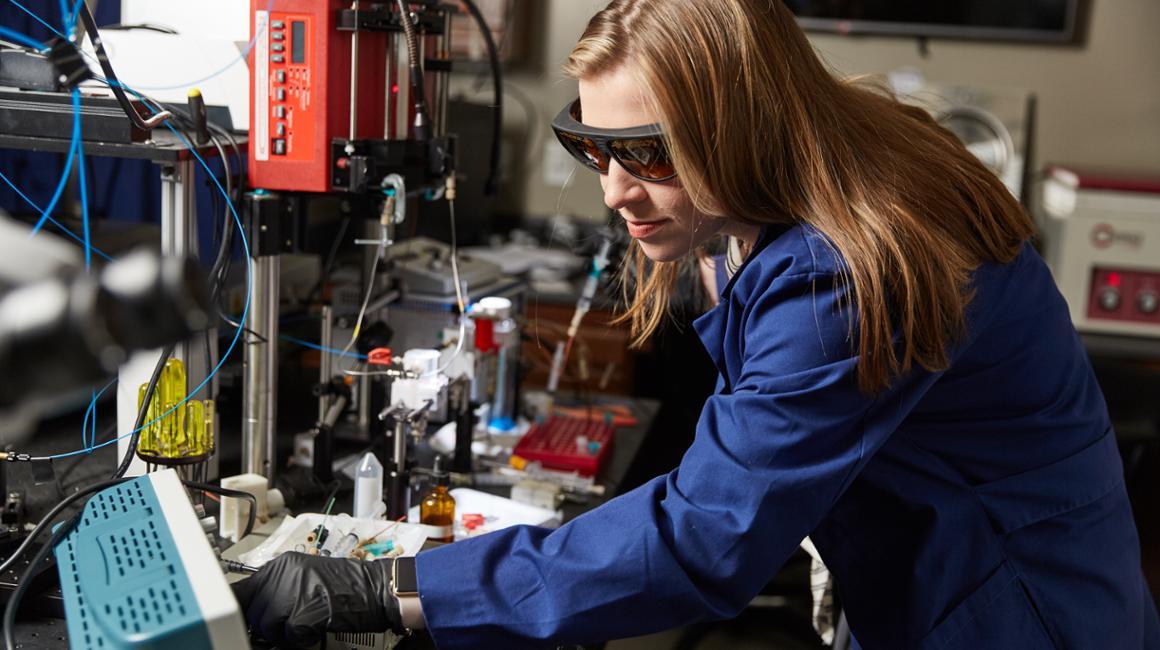The Master of Science in Biomedical Engineering prepares you to lead at the intersection of engineering, technology and human health. Through a flexible curriculum, you’ll gain the knowledge and hands-on experience needed to design innovative biomedical devices, contribute to cutting-edge research and develop solutions that improve health outcomes and quality of life.
You will benefit from access to state-of-the-art research facilities, close collaboration with faculty and opportunities to build specialized expertise for careers in industry, government or academia. The program also provides a strong foundation for those pursuing a PhD or professional medical education.
Graduates will emerge with proficiency in modern engineering tools and techniques, the ability to engage thoughtfully with ethical and contemporary issues in the field and—through the thesis option—research experience that can lead to published work.





